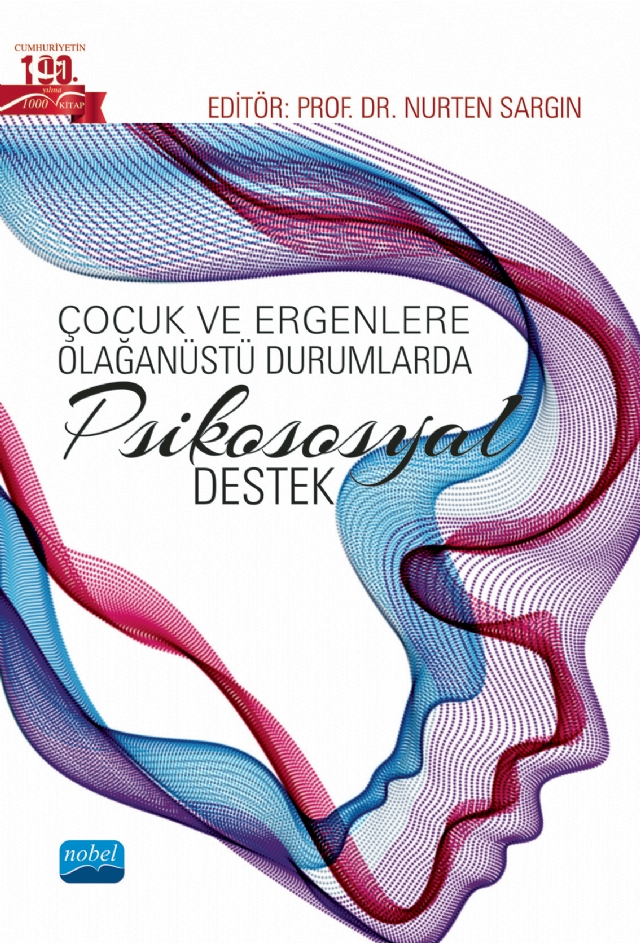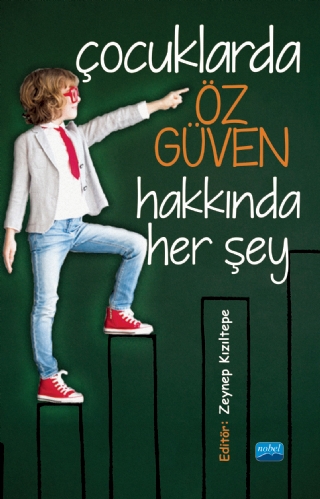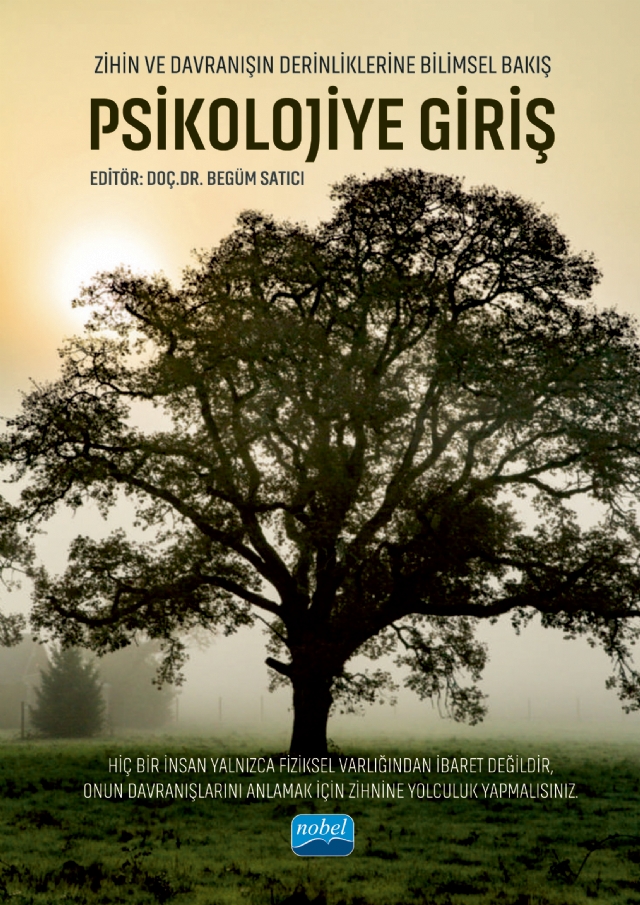Puberty \ 1-1

Man has been witnessing and being exposed to extraordinary events called traumatic experiences, from natural disasters to wars, from violence to accidents, many disasters and crises since his existence. However, it has been observed that there has been a rapid increase in extraordinary events in recent years. For example, when we look at some of the events that 15-year-old children are exposed to and witnessed in our country today, terrorist attacks, school bus accidents, plane, helicopter and train accidents, wars, earthquakes, floods, fires, avalanche disasters, increasing domestic violence and abuse cases, economic crises and pandemic comes to the fore. Considering all these experiences, it is seen that there are extremely challenging life events that threaten the mental health of children and adolescents. One of the most important duties of field experts is to help protect children's mental health and to provide psychosocial support in extraordinary situations. In this book, extraordinary situations have been defined, tried to be explained by considering them one by one, and examples of activities to be used in extraordinary events and employees in extraordinary situations are given. I hope that the book will be useful to all field experts, especially children and adolescents, and to those who are interested in these subjects.

How to raise a self-confident child? How to develop self-confidence? How can we teach our children self-confidence? When our child encounters failure in school life, what can we do so that he can overcome it on his own and his self-confidence is not damaged? What are the responsibilities of parents in raising a self-confident individual? What are the basic principles of raising self-confident, self-sufficient, leader children? In our book, valuable scientists discussed the answers to all these questions within the framework of their expertise; shared their information with us.
Among the topics of our book; how and under what conditions self-confidence develops in the family and at school; There are reasons for the differences in self-confidence among children, what we need to do to gain self-confidence in our children in a balanced way. In addition, in our book, with an overview of the subject of self-confidence, self-confidence in the preschool period, the relationship between sports and self-confidence, self-confidence and awareness, self-confidence and critical thinking, self-confidence in art and mathematics, the connection between self-confidence and well-being and the relationship between self-confidence and well-being. Finally, the excess of self-confidence is included with details, examples and advice to families.
Among the topics of our book; how and under what conditions self-confidence develops in the family and at school; There are reasons for the differences in self-confidence among children, what we need to do to gain self-confidence in our children in a balanced way. In addition, in our book, with an overview of the subject of self-confidence, self-confidence in the preschool period, the relationship between sports and self-confidence, self-confidence and awareness, self-confidence and critical thinking, self-confidence in art and mathematics, the connection between self-confidence and well-being and the relationship between self-confidence and well-being. Finally, the excess of self-confidence is included with details, examples and advice to families.

One of the traumatic experiences in childhood and adolescence is "bullying" behaviors. Bullying behaviors of various types (verbal, physical, emotional, racist, hiding, behavior disrupting, taking/destroying something belonging to someone else and sexual) seen at school and in virtual environments adversely affect the social, emotional and psychological development of children and adolescents. and cause legal problems.
These negative effects of bullying behaviors are not limited to childhood and adolescence, but it is seen that they negatively affect important personality traits such as self-esteem, self-confidence, psychological resilience, psychological well-being and feelings of love, respect, tolerance and trust in bilateral human relations.
In this work, the types, causes and consequences of bullying behavior, which is an important obstacle to individual development and positive bilateral human relations, are discussed in detail, and a model for the prevention of these behaviors with empathic skills is presented. With this book, besides academicians and practitioners (school psychological counselor, child and adolescent psychologist, classroom guidance teacher) who will work on bullying; It is aimed to help school administrators, branch teachers and parents develop awareness about the types, causes and consequences of bullying behavior.
These negative effects of bullying behaviors are not limited to childhood and adolescence, but it is seen that they negatively affect important personality traits such as self-esteem, self-confidence, psychological resilience, psychological well-being and feelings of love, respect, tolerance and trust in bilateral human relations.
In this work, the types, causes and consequences of bullying behavior, which is an important obstacle to individual development and positive bilateral human relations, are discussed in detail, and a model for the prevention of these behaviors with empathic skills is presented. With this book, besides academicians and practitioners (school psychological counselor, child and adolescent psychologist, classroom guidance teacher) who will work on bullying; It is aimed to help school administrators, branch teachers and parents develop awareness about the types, causes and consequences of bullying behavior.

Since you have started to read this book, we can assume that you have an interest and curiosity in psychology. Psychology attracts the attention of almost everyone at some point because it tries to explain the "me" as a human being. Some want to understand themselves, some their partner, their boss, some their children and some their parents. In other words, the effort to understand people and ourselves in the first place leads us to learn psychology. As in the verses of the famous folk poet of Anatolia, Yunus Emre, which are rosewood in our language, "Science is knowledge, knowledge is knowing yourself, if you do not know yourself, it is a lot of reading".
However, this self-knowledge, self-learning, self-discovery can often turn into a toy in the hands of those who turn science into a profit for their own interests. As a matter of fact, not understanding psychology correctly "Are you reading my mind now?" It may also cause you to become the target of the question. “I am also interested in psychology.”, “We also understand psychology, I love personal development books.” Such sentences will be some of the things that those who will specialize in this field will often hear. So, is psychology really a field that anyone who is interested in can specialize in by reading a few books? I can imagine that you answered “no” to this question. Still, it can be equally dangerous to popularize psychology too much and push it away from science, leaving it only in the hands of scientists and making it elitist. Because science will only be useful as long as it reaches people and continues to develop like a living organism in life.
The science of psychology was shaped centuries ago by the answers given by philosophers to the questions they asked to understand human, and then it was born as a science on the basis of physiological studies. Psychology continues to keep our curiosity alive today, with hundreds of theories and millions of concepts written about it.
However, this self-knowledge, self-learning, self-discovery can often turn into a toy in the hands of those who turn science into a profit for their own interests. As a matter of fact, not understanding psychology correctly "Are you reading my mind now?" It may also cause you to become the target of the question. “I am also interested in psychology.”, “We also understand psychology, I love personal development books.” Such sentences will be some of the things that those who will specialize in this field will often hear. So, is psychology really a field that anyone who is interested in can specialize in by reading a few books? I can imagine that you answered “no” to this question. Still, it can be equally dangerous to popularize psychology too much and push it away from science, leaving it only in the hands of scientists and making it elitist. Because science will only be useful as long as it reaches people and continues to develop like a living organism in life.
The science of psychology was shaped centuries ago by the answers given by philosophers to the questions they asked to understand human, and then it was born as a science on the basis of physiological studies. Psychology continues to keep our curiosity alive today, with hundreds of theories and millions of concepts written about it.

The Change Agenda is not an agenda to advise, advise, or incite. Psychotherapy is not! However, while we were preparing this agenda, we took the basic knowledge of psychology and psychotherapy theories as a basis. We aimed to contribute to your reasoning and emotion regulation skills and increase your level of psychological flexibility without overwhelming you with theoretical knowledge, especially by acting on the axis of schools such as Cognitive Behavioral Therapies, Emotion-Focused Therapy, Positive Psychology and Mindfulness.
We have designed the Exchange Agenda, which can be used by students who are busy with the exam, regardless of their group, from secondary education to university, so that you can use it throughout the year. Although our main aim is to provide guidance and support to students who are anxious during exam and performance processes, there are many exercises in this agenda to improve their ability to regulate thoughts, behaviors and emotions.
While working with this agenda, you will be able to improve your skills of "making worry useful" and "increasing tolerance to worry" as well as "reducing anxiety". Therefore, in the Change A genda, you will find sections where you can discover the causes of problems, recognize the factors that trigger negative emotions in your inner and outer world, and develop appropriate strategies for how to regulate them. Come on, come with us to increase your self-confidence and focus on unlocking your true potential!
We have designed the Exchange Agenda, which can be used by students who are busy with the exam, regardless of their group, from secondary education to university, so that you can use it throughout the year. Although our main aim is to provide guidance and support to students who are anxious during exam and performance processes, there are many exercises in this agenda to improve their ability to regulate thoughts, behaviors and emotions.
While working with this agenda, you will be able to improve your skills of "making worry useful" and "increasing tolerance to worry" as well as "reducing anxiety". Therefore, in the Change A genda, you will find sections where you can discover the causes of problems, recognize the factors that trigger negative emotions in your inner and outer world, and develop appropriate strategies for how to regulate them. Come on, come with us to increase your self-confidence and focus on unlocking your true potential!